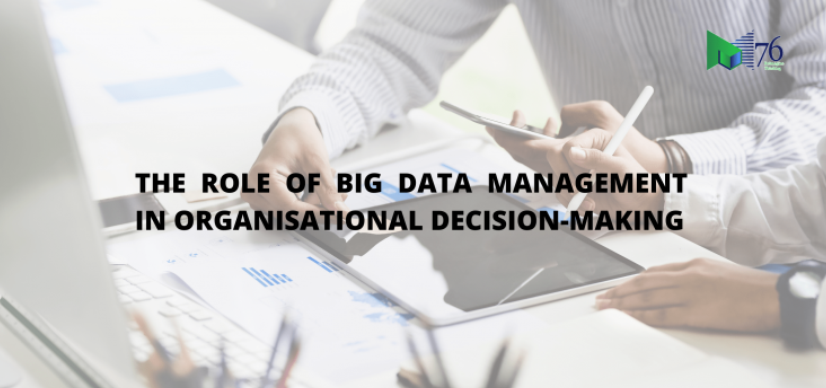The number of touchpoints between businesses and their customers has increased dramatically since the internet’s inception and subsequent dominance. The list goes on and on: social media, websites, blogs, forums, mobile devices, and so on.
Every day, a massive amount of data is created on these networks. If this data is correctly saved and analyzed, it can give businesses important information about user behavior patterns, preferences, and even competitive insights.
Big data management, however, has been a difficulty for most businesses in the last decade due to the sheer quantity and volume required But this has changed in recent years.
A rising number of firms have adopted big data as a result of the advent of new apps and approaches such as cloud management. As a result, big data management and the insights it provides have become the foundation for a wide range of business operations, including decision-making.
Using big data analytics for organizational decision making
To begin, it’s critical to comprehend how big data analytics is applied to decision-making. While it may appear to be a magical process at first, collecting big data analytics and using them in decision-making isn’t all that difficult.
The business determines the goals first. These will be the benchmarks you use to evaluate performance and determine whether the company is on the right track. It’s a good idea to refine your goals and performance measures after you’ve identified them. This ensures that only the best data is collected, resulting in more accurate analysis.
After then, the most crucial phase in large data management takes place: data collecting. The goal is to employ as many relevant sources as possible; as we previously stated, this should not be a problem given the availability of client touchpoints. The data you collect can be structured or unstructured, and the software you use will determine how to make sense of it all.
Following that, all collected data should be refined and categorized depending on their importance in attaining the previously defined goals. Following the weeding out of extraneous data, it’s critical to categorize everything depending on its intended use — would this aid enhance efficiency? Will this aid in the improvement of customer relations? And so forth.
It’s time to start analyzing and applying the data once it’s been prepared. It’s critical to choose the correct tools and software for your big data management because they can provide significant benefits to your company. And now you have your vital insights, which means you’re ready to put your plans into action and make decisions based on them.
So, now that you have everything in place to begin using big data in your decision-making process, what’s next?
Building better consumer relationships with big data management
The relationship that most businesses maintain with their customers is at the heart of their operations. Strengthening and expanding on it is frequently the key to a company’s success. It’s a straightforward formula: the more engaged your customers are with your product and brand, the higher your conversion rate will be. This basic reality simplifies the purpose of customer-related decisions: guarantee that they are engaged and that you retain them.
Boosting operational efficiency with big data management
Every organization strives to improve its efficiency. Decisions are made with the purpose of enhancing performance in the workforce as well as in routine procedures. The problem is that the greatest options aren’t always obvious; it’s not uncommon for businesses to rely on trial and error to find the finest practices.
Big data, on the other hand, is able to deconstruct all of this. The outcome of efficiency-related business actions may be calculated fairly precisely in real time using big data management.
Wrapping up:
Mego uses big data for making better decisions in your organization. If you’re planning to implement Big data in your organization for better decision making or want to learn more about the topic, feel free to get in touch with one of our data analytics experts.

